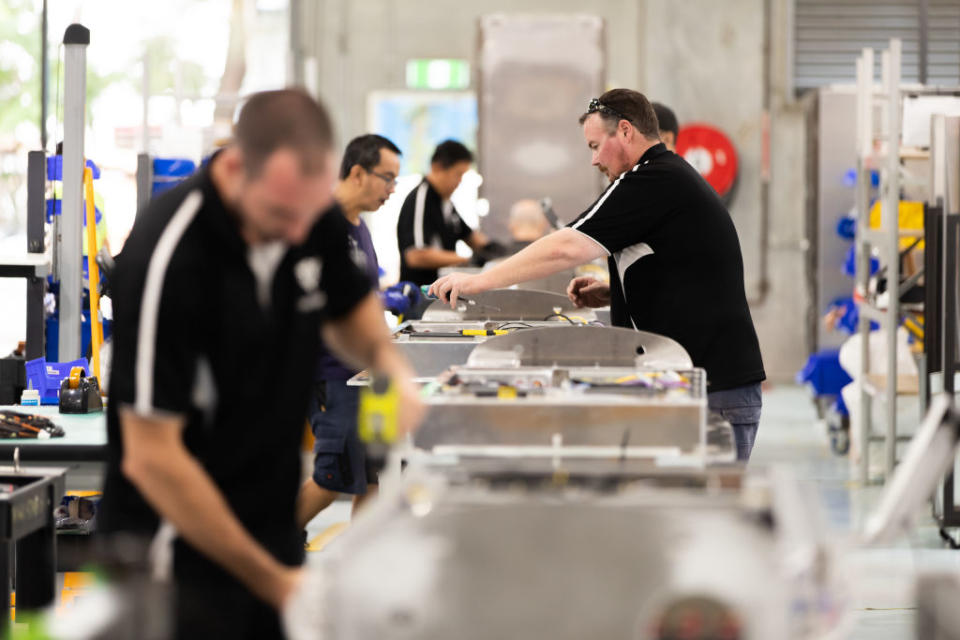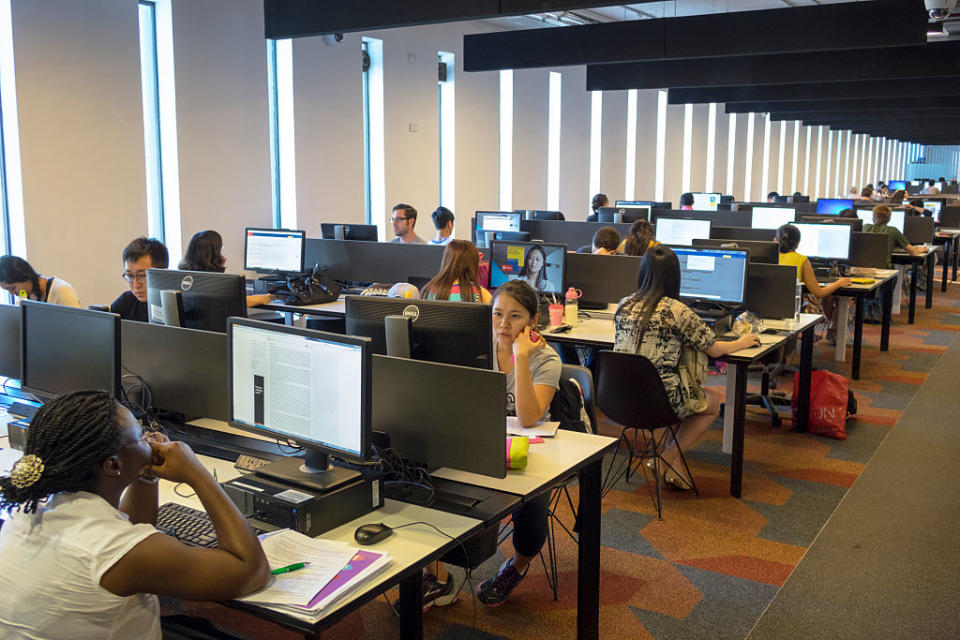154,000 jobs to be filled: How to skill up for the AI revolution

Artificial intelligence (AI) is set to touch and transform each Australian industry and sector, meaning every employee will have to adjust.
By 2030, the CSIRO estimates that Australia will need a workforce hovering somewhere between 23,000 to 161,000 that is competent in various areas of AI, according to the scientific agency’s recently released Artificial Intelligence Roadmap report.
But Australia currently has only 6,600 AI specialist workers.
Related story: This is where Australia’s next jobs boom will be
Related story: Why tech skills aren’t the key to success in a digitalising workplace
Related story: 10 skills you won’t need by 2022 — and 10 you will
And according to a report by the Australian Computer Society (ACS) prepared by Deloitte earlier this year, the demand for tech workers in Australia will grow by 20,000 every year until 2023.
“Australia needs to train and educate an entire new AI specialist workforce to meet the current and future operational needs of industry,” CSIRO’s report said.
We’ll need workers in computer vision, robotics, human language technologies, data science, and other areas.
But how do we plug this gap?
Science and education experts are suggesting one solution: micro-credentials.
What are micro-credentials?
Micro-credentialling is a growing trend in education and in the workforce where you can obtain certification-style qualifications from training providers for one specific skill in a particular industry.
University of Melbourne pro vice-chancellor of teaching and learning, Gregor Kennedy, said there is a growing appetite for micro-credentials from both industry workers as well as students wanting to expand their skills.
“The growth on online short courses, most notably Massive Open Online Courses, has been strongest in areas such as business, IT, and health. I expect there will be a growth in the appetite for micro-credentials particularly in these areas,” he said.
In terms of AI, machine-learning is a significant gap that requires plugging, according to CSIRO’s Data61 senior research scientist Dr Stefan Hajkowicz.
“For example, fluency with Google’s TensorFlow or Microsoft Azure Machine Learning models,” he explained.
Where do I get micro-credentials?
Micro-credentials can be obtained through various university or non-university education and training providers, with the certificate typically provided through digital means.
Most often, however, they are obtained through online course platforms – and are also free. Micro-credentials are essentially synonymous with Massive Open Online Courses (MOOCs), which are free online courses designed to make higher education more accessible and affordable.
Well-known MOOC platforms are Coursera, edX, Futurelearn, Udacity and Udemy, but other major universities – such as Harvard, Massachusetts Institute of Technology (MIT), the National University of Singapore, and Dublin’s Trinity College – have also jumped on board.
Back home, Open Universities Australia (OUA) has launched MOOC platform Open2Study, where a number of Aussie educational institutions have listed their MOOCs.
The Australian National University (ANU), Monash University and the University of Queensland, and the University of New England are some universities that have developed MOOCs.

The perks of being a specialist
For Aussie tech workers, micro-qualifications could also be the key to a pay rise.
“There’s a large section of the Australian workforce who aren’t yet AI specialists but aren’t far off,” Hajkowicz told Yahoo Finance.
“Targeted upskilling on the right topics and the right time, place and learning-format will allow many Australians working in the digital/ICT sectors to become well paid AI specialists in fields such as machine learning, computer vision, robotics and human language technologies.
“The worker wanting to transition seldom needs an entire degree; they need a specific skill. And they might need it by next week to complete the task and get that job.”
Those working in the AI field are most likely looking at six-figure pay packets. Data scientists with post-grad IT qualifications can expect to see their salary rise from $111,634 to $130,176 between 2017 and 2022, according to a 2018 Deloitte report.
But it’s not all about tech
However, preparing for the AI revolution won’t just mean sharpening your tech skills.
According to the World Economic Forum, skills such as manual dexterity, financial and material resource management and technology use will become increasingly obsolete by 2022, while analytical thinking, creativity, critical thinking and problem-solving will rise in prominence.
Swinburne University’s Dr Sean Gallagher told the Yahoo Finance All Markets Summit that tech skills would not be the key to success in a digitalising workplace.
“In increasingly digital environments, we need to be increasingly human in order to be able to compete, and to work effectively,” Gallagher said.
And for those who can get the right mix of skills, the rewards will be great.
“For a significant period of time demand will outstrip supply and salaries will be high. But it’s not all hard/technical skills,” Hajkowicz said.
“In an AI-enabled world, your human skills of judgement, creativity, logic, emotional intelligence and communication are beyond the reach of AI and increasingly valuable.”
AI software firm LiveTiles co-founder and chief experience officer Peter Nguyen-Brown said that the qualities of leadership, collaboration and resourcefulness had to be recognised.
“By recognising where AI can improve and encourage productivity outcomes, the most successful workplaces will be ones where these core values are fostered and encouraged, to ensure that employees can do their best work,” he said.
Those who dismiss artificial intelligence as just something affecting tech industries have been warned.
“AI is a general purpose technology. We can’t find an industry, area or sector where it doesn’t apply,” said Hajkowicz.
“There’s a range of hard and soft skills needed; all of which apply to micro-credentialing.”
Make your money work with Yahoo Finance’s daily newsletter. Sign up here and stay on top of the latest money, news and tech news.


